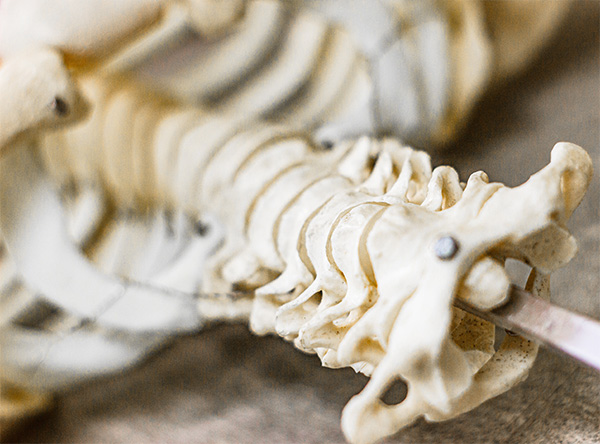Skeletal Dysplasia Clinical research
Skeletal Dysplasia functional diagnostic UNIT
Our group coordinates a consortium between research laboratories from IBIMA/UMA clinical groups from the SSPA (Andalusian Public Health System). This consortium also expands to research and clinical groups in several countries within the European Union.
This Unit is dedicated to solve skeletal dysplasias cases of difficult diagnosis.
When a rare disease case does not fall within the typical spectrum of disease or render a sequencing result classified as a Variant of Undefined Significance (VUS), most of health systems are not able to generate a diagnosis and proper care of those patients is compromised. These cases can only be resolved by functional research studies in multidisciplinary laboratories whose resources are limited. Our group leads a project to generate the first functional diagnostic UNIT to solve these difficult cases of skeletal dysplasias.
Collaboration with Specialised Units
Our group collaborates with pediatric, endocrinology and traumatology units of several hospitals in search of diagnosis of genetic cases of difficult resolution. Clinical genetics is expanding globally due to the need for specialized diagnosis and treatment of rare diseases. In the long term, genetic causes of low prevalence diseases are being found, however there is still a vast majority of patients with rare diseases who do not receive a clear diagnosis or treatment according to their needs. This is due to the necessity of difficult and super-specialiced functional studies to establish the genetic causes of the syndromes. Our group has created this clinical research unit in order to help patients and families with skeletal dysplasias receive a proper diagnosis in their search for the best possible clinical care.

Collaboration with Specialised Units
Our group collaborates with pediatric, endocrinology and traumatology units of several hospitals in search of diagnosis of genetic cases of difficult resolution. Clinical genetics is expanding globally due to the need for specialized diagnosis and treatment of rare diseases. In the long term, genetic causes of low prevalence diseases are being found, however there is still a vast majority of patients with rare diseases who do not receive a clear diagnosis or treatment according to their needs. This is due to the necessity of difficult and super-specialiced functional studies to establish the genetic causes of the syndromes. Our group has created this clinical research unit in order to help patients and families with skeletal dysplasias receive a proper diagnosis in their search for the best possible clinical care.
We work in strict collaboration with health institutions that transfer to us cases that are difficult to diagnose and require functional studies. Our studies are customised on a case-by-case basis using in vitro (cell cultures and organoids) and in vivo (zebrafish and mouse) models. If you are a patient and you are interested in our work, you can send our reference to the specialist doctor in charge of your case.
These studies require a great economic effort that is reinforced by research projects of the research group itself, as well as institutional donations and foundations such as AHUCE. If you would like to help in our mission through an economic donation, you can send us a message through the contact page of this website to process it through the University of Malaga or contact the foundations that finance us, such as the AHUCE Foundation.
